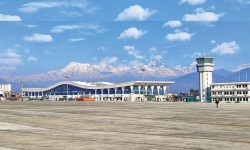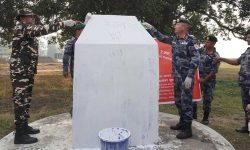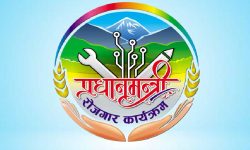Nehru and Army
While studying about Nehru, it seems that he would always suspect over Army.
He feared with facts that lest the Army might coup to disturb him at any moment.
Such the thoughts of his were not wrong. At that time whatever Generals stated
and their discussions with British High Commissioner, all those things were
published in books. Field Marshal K.M. Cariappa had said openly, “———need for
a military rule in India—– He openly supported the military-coup of Gen, Ayub,
Field Marshal of Pakistan.
General K.S. Thimayya had openly brought the concerned issues on the table of
negotiation to negotiate with British High Commissioner Malcolin Mac Donald,
and the authentic resources say that he openly talked to him going into its details.
Like this General J.N. Chowdhury had his views with John Freeman, British High
Commissioner.
If we peep into the reality of the world, we will often come to the conclusion that
there remained 24 Military Coup between 1948 to 1955, and 46 Military Coup
between 1956 to 1964, and the authentic resources reported that among them
66% became successful, meaning to say that 70 Military Coup existed in the world
after the independence of India.
In 1951, in Pakistan, there remained a failed Military Coup in the name of
Rawalpindi Conspiracy in which several Muslim Officers from Indian National
Army (INA) was involved. Our readers may have astonished how INA, after Red
Fort Trial, almost all Senior Army Muslim Officers joining tribal peoples at first
attacked Kashmir in 1948, and then in 1951, tried to turn the elected Pakistani
government out of the throne.
In 1953, in Pakistan, Military supported Coup, and this in 1958, Commander in
Chief Mohammad Ayub Khan occupied the throne in his hands. General Cariappa
openly supported Ayub Khan for this occupied action displayed by General Ayub.
In 1958, in Burma, there remained a Military Coup led under the leadership of
General Ne. Win, and at the same pace, in Sri Lanka, in 1962; there remained a
failed Military Coup which we call Colonels Coup.
Like this, there remained a Military Coup in Iran in 1963.
Therefore, the suspicion or doubt that Nehru had in his mind was not wrong.
Nehru improved his Indian Civil Administration and strengthened administrative
systems as well. Flag was hoisted on the car of Brigadier but then after system improvement, Flag began to hoist on the DIG of Police. Police Regiments were
given the flag which is used in Army. Silver Badges were given to Police, while
Golden Badges are used in Military.
A law was implemented that in every state there will be its Armed Police.
R.P.(Now CRPF) & Assam Rifles were empowered or made stronger. Meaning to
say, in regime of Nehru, an attempt was made to weigh Army & Police in one
(same) scale.
In the same, all such possibilities that attract the mentality of Coup were
blocked.
The role of civil people in Defence Ministry was increased to encircle Army’s role.
It was only the reason of conflict between General Thimayya and Defence
Minister Krishna Menon.
Armed Forces enmity is none but Nehru Family to which the biggest cause is the
reason of civilian interference. Narendra Modi has tried to turn it down. Our
country will suffer more in 15 to 20 years.
After the war of 1962, almost all officers have written books against Nehru,
Whatever grievances they had, are right but Nehru’s China Policy was never
supported by Army. The behaviour of General Thimayya was changed after the
war of Korea. This is the reason that Nehru had vacated an advanced Post for a
Special Squad under the kind control of Director B.N. Malik of Intelligence Bureau
to the regions of Aksai Chin & Tibet Border. Several army officers have written
books on such issues with their satirical views against the Policy chalked out by
Nehru for China.
In Oct, 1959, Chinese killed 10 police men at Kongka Pass (Laddakh), and arrested
12 personnel whom they took away with them. At that time our Indian Army
openly criticized this Policy prepared by Nehru.
Nehru was of the opinion that the Army itself is accountable towards
government. The Army didn’t like this type of ideology by Nehru. General
Thimayya had done a marvelous work in Korea War, and for such services, Nehru
had regards for him. Nehru didn’t accept the resignation, when he resigned from
his post.
I remember when IPKF Operation was launched in Sri Lanka, Army officers were
found discussing what Congress is doing. We are here for fighting against Pakistan
and China, but not for fighting with rebels of Sri Lanka.
I also remember that of the speech when Atal Bihari Vajpayee sternly criticized
Rajiv Gandhi for issues related to the use of computer.
In actual facts, differences lie in opinions. India is a global power, so the visions
and views by Armed Forces should be global, and not the vision of 15000 K.M. For
displaying Global Role, either it may be the Army or any other Institute/Academy;4
the Accountability should be under decision on justified grounds. Then after only
we can be successful, Nehru was of the same opinion. Whenever the issue of
accountability, for which no one becomes ready to accept, is raised, in such a
case, how can only the Army be focused as its subject of discussion?
-Deepak Saxena
Saxena is a Psephologist and a Journalist.








प्रतिक्रिया